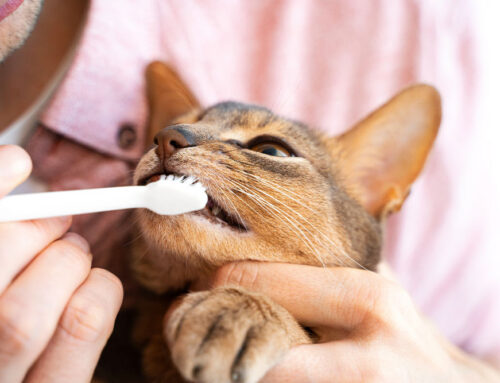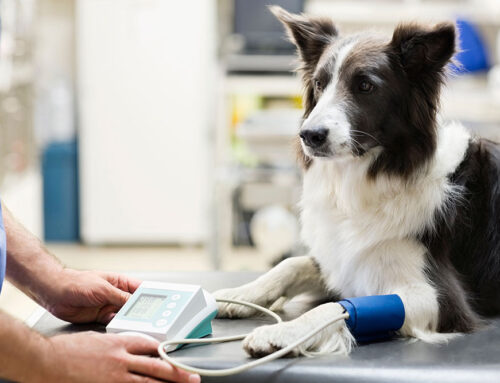Have you ever stared into the pantry or refrigerator pondering what to make for dinner, and thought to yourself, “I wish dog food came in a human version, so I didn’t have to keep coming up with meal ideas.” While simply scooping some dog food into a bowl or opening a can of cat food seems easy, having your pet eat the same thing day in and day out means you have a big responsibility to ensure you are putting the right food into their dish. So, how do you choose the right food? The answers to the following questions should help you narrow down the options.
What is your pet like?
You probably already know that dogs need dog food and cats need cat food, but you also need to consider your pet’s age, size, and lifestyle. Some pet food labels claim the product is formulated for all life stages, but these are generally not a good choice, as one single food cannot adequately supply the needs of a tiny teacup Yorkie puppy, gangly mastiff puppy, elderly Labrador retriever, rotund dachshund, coon-hunting hound, or pregnant Great Dane. A food created specifically for your pet’s needs is far more preferable.
For example, selecting a food formulated for toy-breed puppies will ensure your one-pound teacup Yorkie gets their needed nutrients, delivered in a dainty kibble size perfect for little mouths. If your puppy will grow to weigh more than 50 pounds as an adult, feed them a large-breed puppy food, to support slow and steady growth, and decrease the risk of orthopedic problems due to excessively fast growth. An older pet would benefit from a senior diet, to support their aging bodies and more sedentary lifestyle. If your pet is overweight or obese, select a weight management diet formulated to promote healthy weight loss while keeping your pet feeling full.
What do you know about the company making the pet food?
Larger, long-time companies have the expertise born of years of food manufacturing, as well as the ability to employ a wealth of well-trained veterinary nutritionists and food scientists to ensure their food is safe, healthy, and good quality. This doesn’t mean that small or new companies are inherently bad—only that their products haven’t yet stood the test of time, and they may not have the resources to have many, or any, veterinary nutritionists or food scientists on staff. To learn more about the company making your pet’s food, call the number listed on the package, and ask them these questions.
What kind of testing was performed on the pet food?
The Association of American Feed Control Officials (AAFCO) is a non-profit organization that creates standards for animal feed and drugs, including pet food. Any pet food package label should include a statement indicating the food has either been formulated to meet AAFCO standards, meaning the food has been approved based on the diet’s computer formulation, or has undergone feeding trials using AAFCO procedures, indicating that pets eating the diet were studied prior to diet approval. Whenever possible, select foods that have gone through feeding trials, for added confidence that the diet is suitable for your pet. To learn more about the AAFCO standards, ingredient definitions, and how to read a label, refer to the AAFCO website, or consult our Fairfax Veterinary Clinic team.
What are some of the key pet food ingredients?

Ingredients are a hot button issue for owners and veterinarians, as pet food marketing has pushed the agenda that grains are bad, and exotic, grain-free diets are best. The reality is that few pets are allergic to grains, or need an exotic meat diet, such as kangaroo, alligator, ostrich, bison, or duck. In fact, boutique, exotic ingredient, and grain-free (BEG) diets have been implicated in potential development of Dilated Cardiomyopathy (DCM), an enlargement of the heart chambers that can be fatal for pets. The FDA continues to investigate the link, if any, between BEG diets and DCM, but until a consensus is reached, our Fairfax Veterinary Clinic team recommends you avoid feeding BEG diets to your pets. If your pet is currently on a BEG diet, schedule a nutrition consultation with our team to discuss the best course of action. Sometimes, our veterinarians will prescribe an exotic or limited ingredient diet from a proven manufacturer with good research and quality control standards for pets with food allergies, but choosing such a diet should be left to our veterinarians’ discretion, rather than pet food marketing schemes.
We probably can’t solve your dinner dilemma, but our Fairfax Veterinary Hospital team is here to help you select the perfect food for your precious pet. Whether you have brought home a new pet, think your furry friend has more fat than fluff, or are wondering if you need to change your pet’s diet, contact us to take advantage of our veterinary nutrition expertise.








Leave A Comment